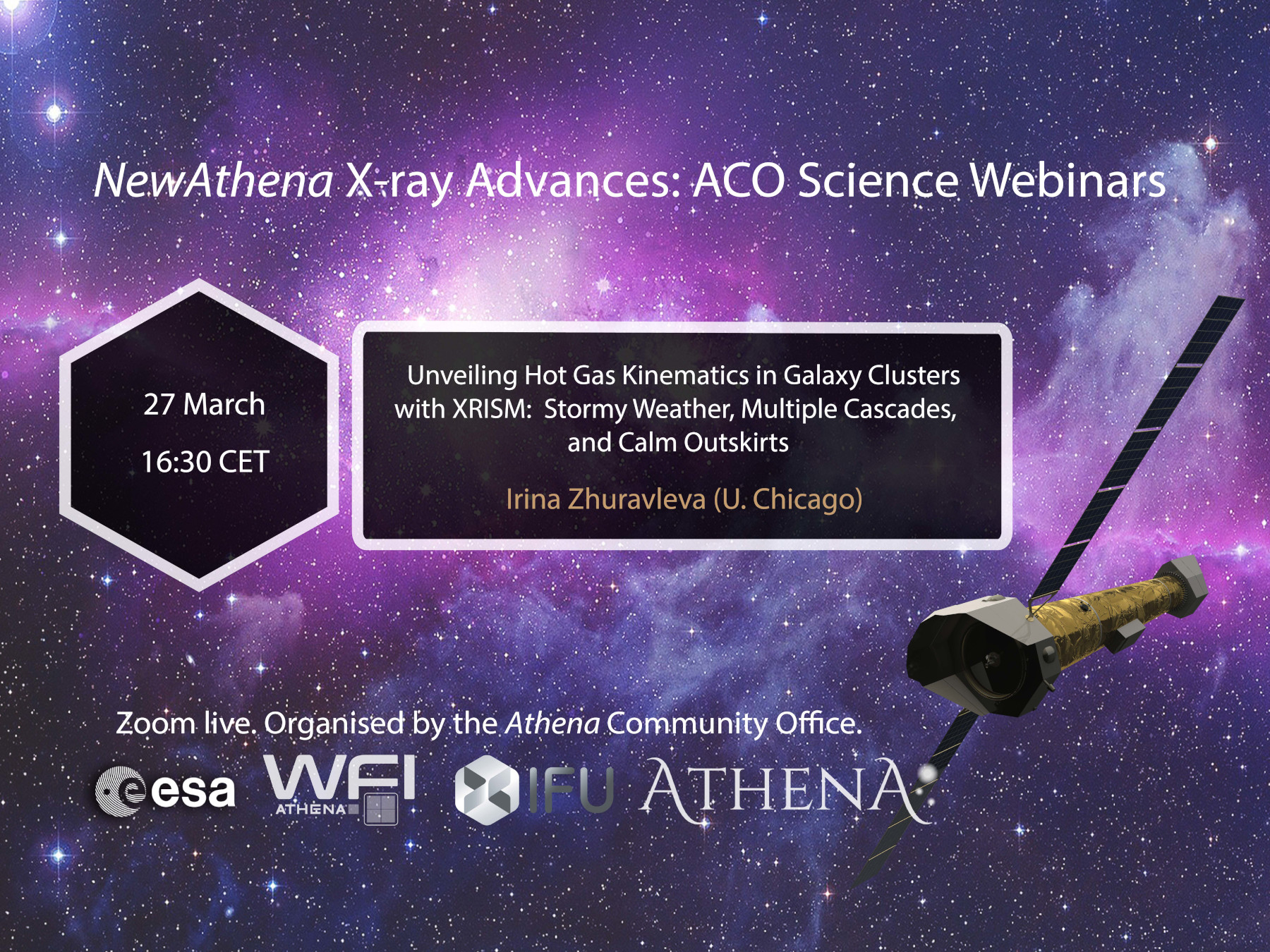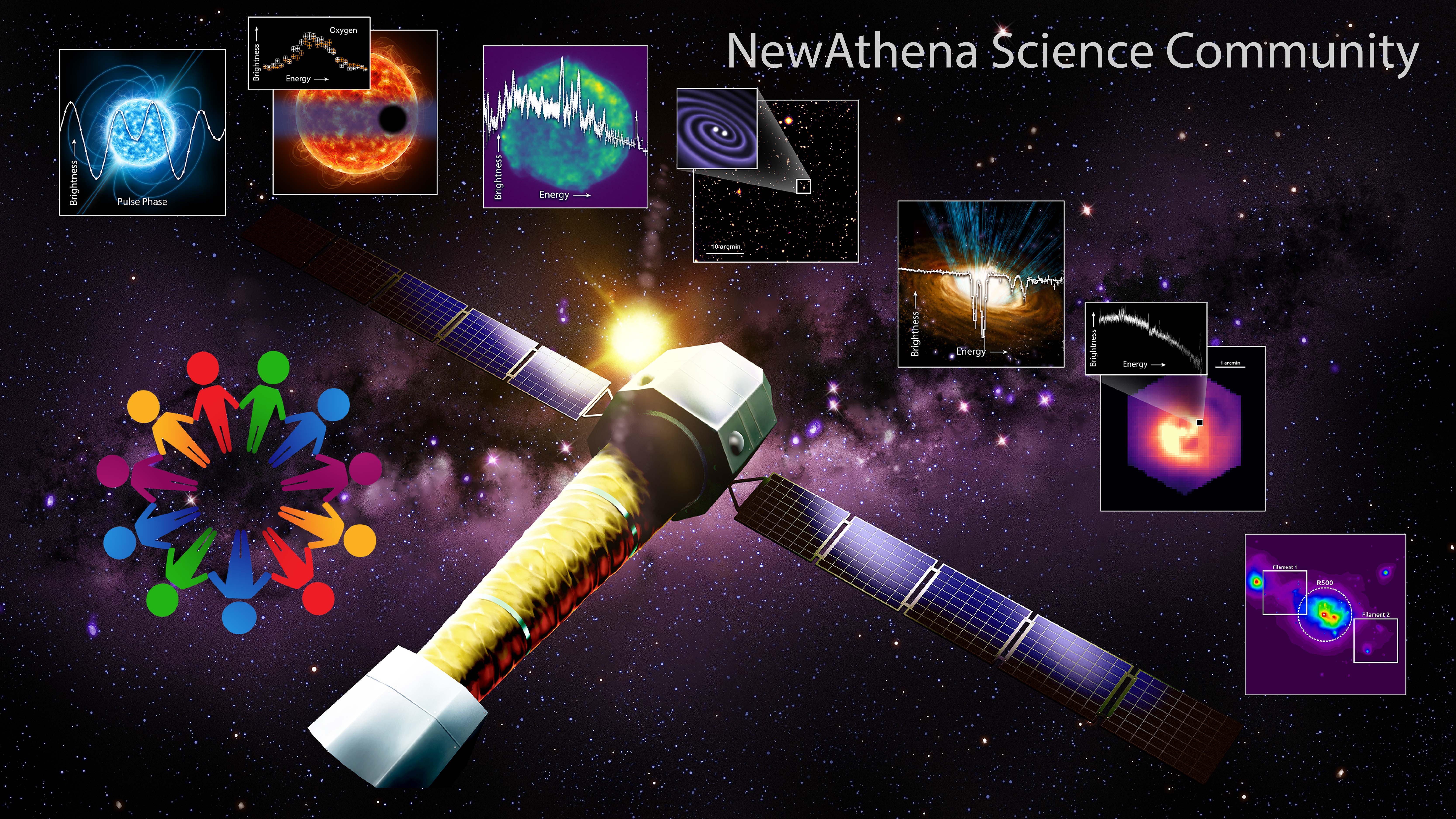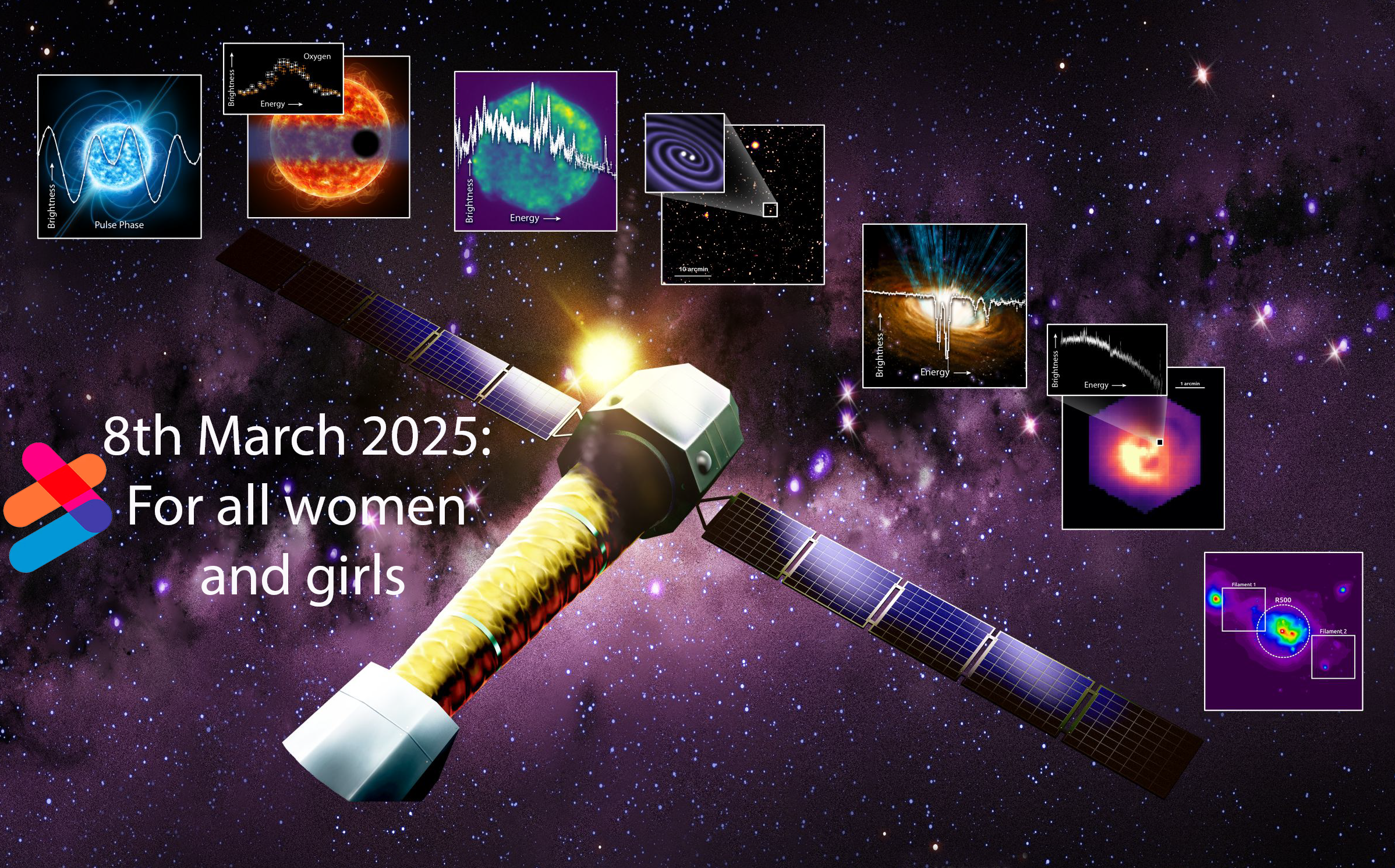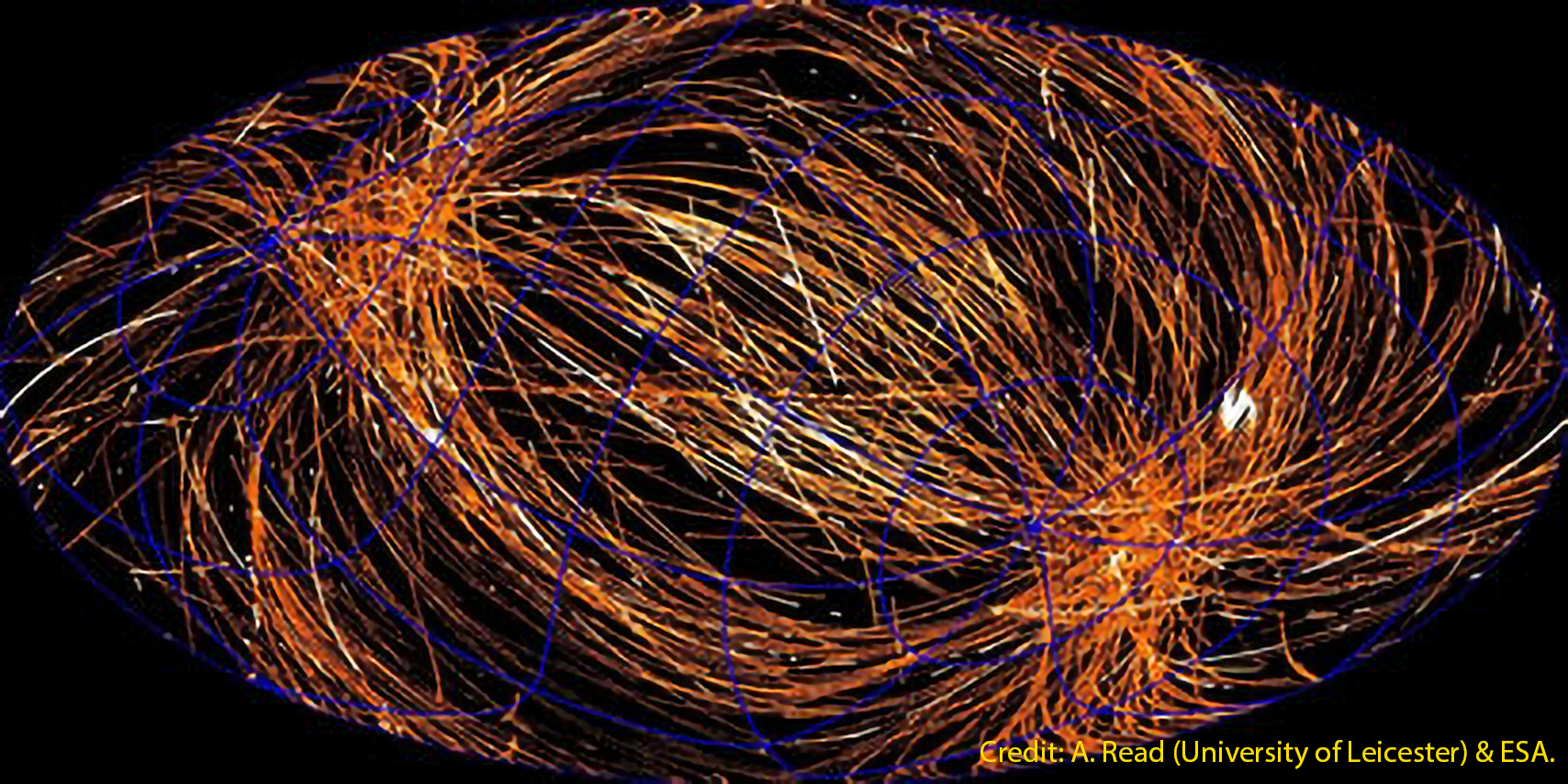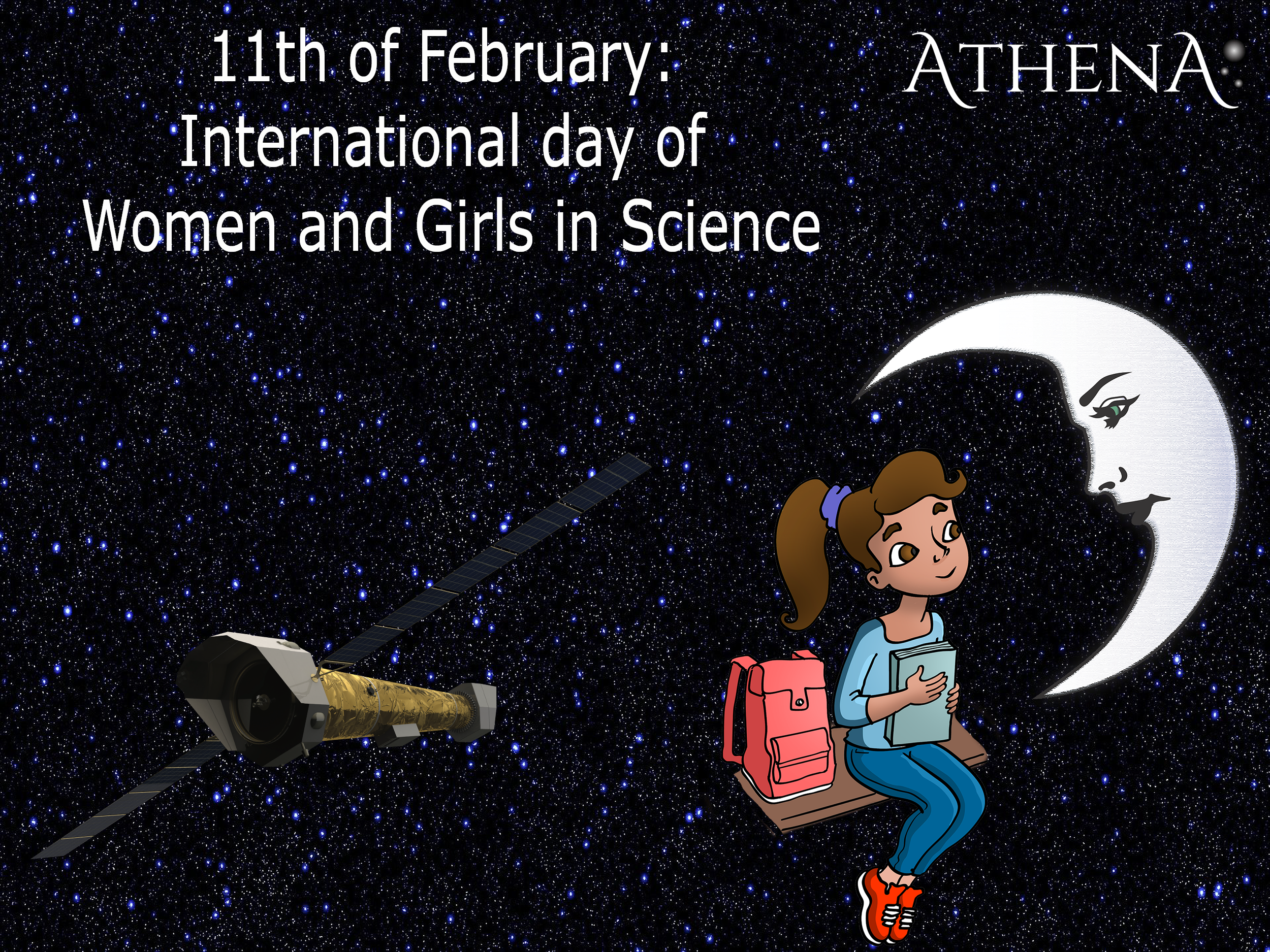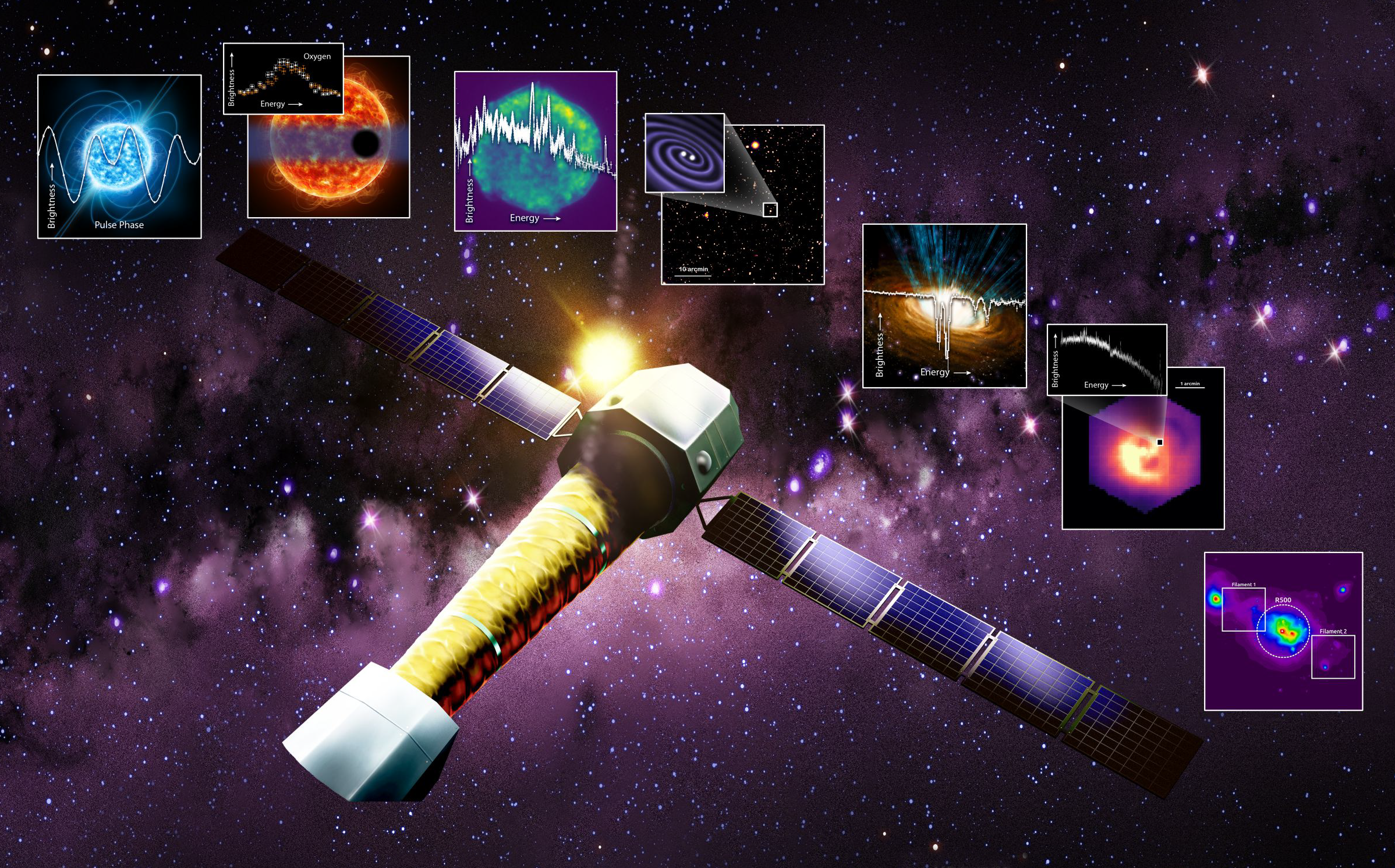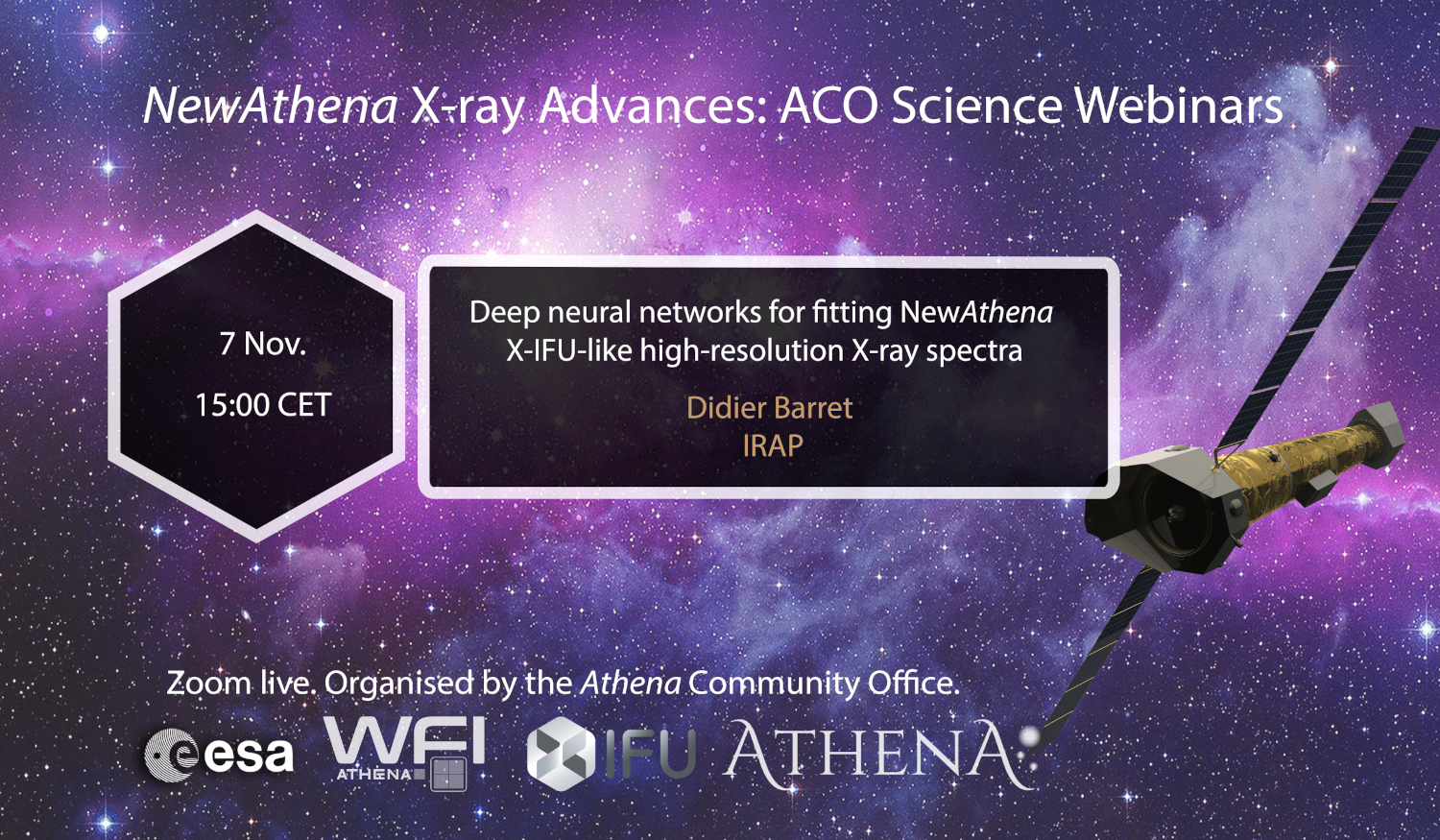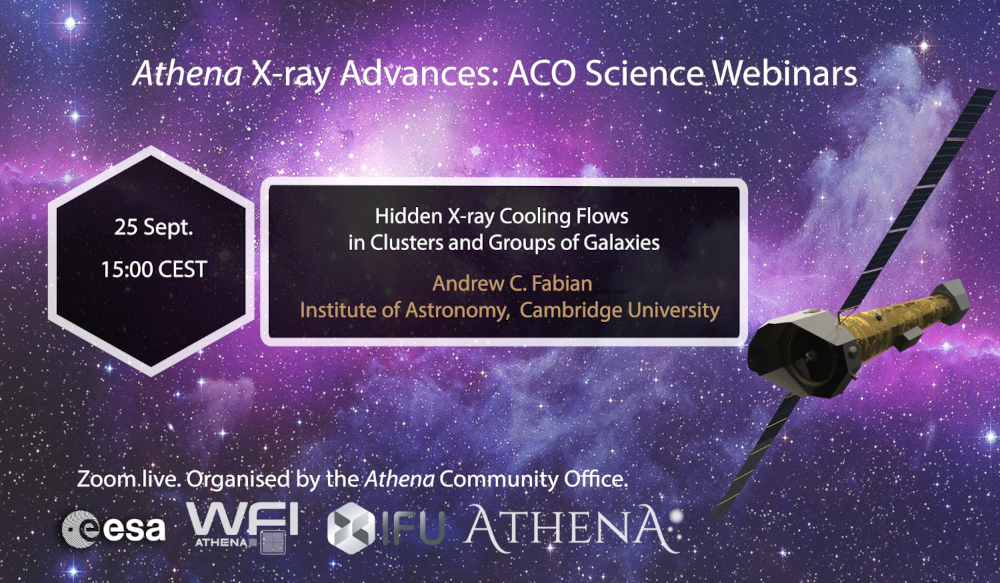
Athena X-ray Advances series: Andrew C. Fabian
The next webinar of the “Athena X-ray Advances: ASST & ACO Science Webinars” is forseen on the 25th of September at 15 CEST. Andrew C. Fabian (Institute of Astronomy, University of Cambridge) will give the webinar entitled "Hidden X-ray Cooling Flows in Clusters and Groups of Galaxies” this time.
Abstract: Half of all clusters of galaxies have a cool core in which the temperature drops inward accompanied by a density rise as expected from a continuous cooling flow. Over 20 years ago, high-resolution XMM-Newton/RGS spectra were interpreted as showing little evidence for the cooling flow continuing below 1 keV at the rates inferred from higher temperatures. We have now re-examined the RGS spectra of over two dozen clusters, groups and early-type galaxies where central dusty cold gas clouds are commonly seen in the optical band. The results show that an intrinsically-absorbed (Hidden) Cooling Flow model in which cold gas is interspersed with cooling gas allows for significant continuous mass cooling rates to 0.1 keV and below at a level 15-50% of the rates expected from imaging studies above 1 keV. The rates range from 1-20 Msun/yr in galaxies and groups to 15 -100 in regular clusters. Several highly luminous clusters at higher redshifts have mass cooling rates of 1000 Msun/yr or more. Where available the Far Infrared flux is compatible with that resulting from X-ray absorption. Bubbling AGN feedback can account for 50-85% of the reduction in total mass cooling rates but the remaining flow is significant. What happens to the cooled gas is a key issue. We discuss possibilities, including Ultra Cold Gas Clouds, Low-Mass Star Formation, outward dragging by rising bubbles and non-luminous swallowing of brown dwarfs by the central black hole all of which require major revisions of the astrophysics of these exceptional regions. Cool cores are ideal bright extended targets for XRISM and NewAthena.
The webinar connection details are as follows:
https://us06web.zoom.us/j/82232492050?pwd=a3pGRldUdTFtMDFvYVpKajRWa2cyUT09 Passcode: 124111
Further information, including the code of conduct, is accessible on the dedicated website.

Latest News
